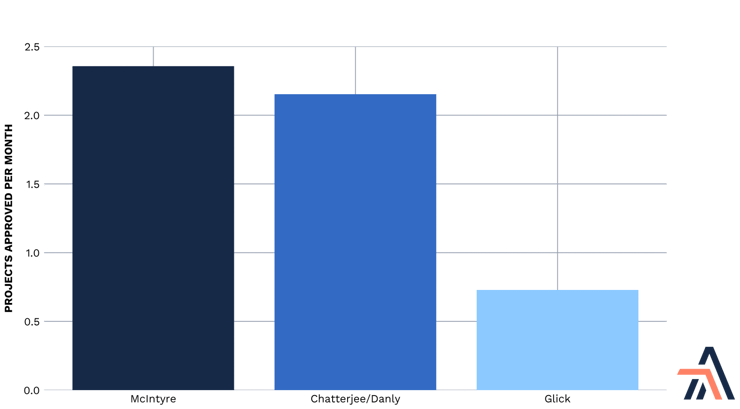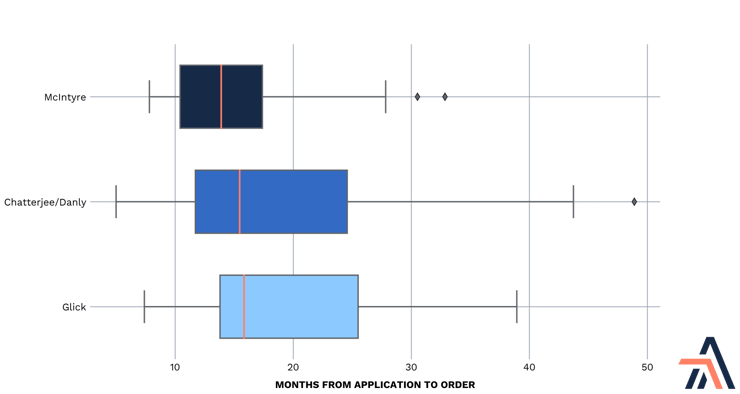The Senate for the last Congress adjourned Tuesday and thus Chairman Glick’s term at FERC has officially ended. Also yesterday, FERC announced that President Biden had designated Commissioner Phillips to be the acting chairman. Until a new commissioner can be nominated and confirmed to replace former Chairman Glick, we expect Commissioner Phillips to remain as the chair of FERC and that he will control the process for approving pipeline projects.
The tenure of Chairman Glick was likely the worst period for pipeline projects in the history of FERC and so we do not think the new chair can be any worse. However, our data shows there is a lot of room for improvement and we will be watching to see what the new chair’s tenure is like.
Chairman Glick Never Denied a Project But Slowed Approvals to a Crawl
By looking at the data for project reviews and approvals over the tenure of the last three chairmen, we see that Chairman Glick’s tenure was a terrible one for pipeline project proponents.

As seen above, the number of projects approved per month of the respective chairman’s tenure shows that Chairman Glick’s was substantially worse than his two predecessors. Part of that was because there were fewer projects proposed during his tenure, but a major contributing factor was the slow pace of the review process that he intentionally slowed to a crawl.
Time for Review and Approval Lengthened Substantially
Comparing again Chairman Glick’s tenure to his two predecessors, the time period between the filing of an application and the order approving the project being issued grew substantially under Chairman Glick when compared to Chairman McIntyre, even though the workload was 20% of that under Chairman McInytre.

As shown above, the time period to review and approve an application grew under Chairman Glick when compared to both prior tenures. This slow pace not only resulted in fewer applications being approved, but also likely led to fewer applications being filed because the intent to slow the process was widely expected.
Chair Has a Lot of Control
In Senator Barrasso Questions Whether FERC Really Withdrew Policies In March, we noted the substantial power the chair has over project reviews, regardless of the views of the other commissioners. And in our look forward to this year, we projected that President Biden would choose Commissioner Phillips over Commissioner Clements. As we said in 2023 Heading to Gridlock or Rampant Bipartisanship?, we would expect Chairman Phillips to return FERC to the review processes that existed under the Obama administration, which would be a vast improvement over the results under Chairman Glick. But, we will be watching to see how the new chair acts and what that means for the review timelines for the currently pending projects.